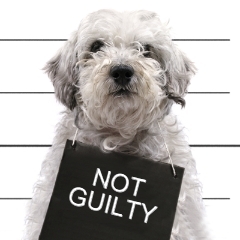“Aggression, Emotions, Behaviour and Labels”

How many behaviours can you think of that you do which do not have an emotion associated with it?
Now answer the same question but think about your dogs behaviour instead.
I think most people now accept that dogs have emotions but there are probably still people who disagree.
It’s hard isn’t it? Not as easy as you first thought. I did the same when the question was first asked to me. “I thought I am sure I can come up with something… There must be something… What about pooping? Nope! I am sure you will agree that there can be lots of emotions associated with the act of defecating.
So if we think of our dogs and their behaviours, is it simple as saying “the dog is being aggressive.” Or is there more to being aggressive than the observable behaviour?
Lets consider this in a little more detail:
“The dog is being aggressive.” or “He is aggressive.” are commonly heard phases. If you describe the image(s) that come to mind when you think of an aggressive dog what would you describe? What if I ask you to describe the emotion/s you think the dog is feeling when he is being aggressive? Is there one label to fit all?
Did I hear you say, “He is being dominant?” Is that an emotion? If you translate that label into basic emotions, what emotions are you referring to?
Did I hear you say “It’s fear!” Dogs are aggressive because they are fearful of some one or something… Is that really always true? It is true that dogs can be aggressive because they are fearful of something but is fear the only reason dogs can be aggressive?
I think this a problem with just putting labels to behaviours such as “aggression”. It implies that the dog has a problem, which we know is ‘X’ so we can fix it by doing ‘Y’. If “Y” doesn’t work then the dog is extremely aggressive maybe a “Red Zone” dog, as some trainers would refer to him. But is it that simple?
If we say that dogs have “basic emotions” (maybe more “complex” ones as well) there could be multiple reasons and associated emotions as to why the dog is being “aggressive”. Lets look at some examples:
- Fear: A dog that is fearful of some one or something can display what we might consider aggressive behaviour.
- Play: A dog that had poor play skills and therefore interactions with other dogs turn into fights or rough play may be referred to as an aggressive dog. I have had lots of puppy owners ring me up and tell me how aggressive their puppy is being. When I look at the situation it has often turned out to be a playful puppy.
- Frustration: A dog that does not have the ability to deal with frustration can be said to be aggressive. (Say he sees a cat, he is unable to get to the cat as he is on a leash and redirects that frustration on the owners’ leg).
- Medical: A medical issue could lowers thresholds for triggering an aggressive response. (For example a dog may becomes “aggressive” with other dogs due to associated discomfort or pain when interacting with them caused by arthritis the dog may have developed.)
This is by no means is an exhaustive list, it barely scratches the surface. It’s a complex topic yet just think how many people accept that it’s aggression so you have to do X, Y and Z. Or they call it “dominance” and try and become “alpha”. Imagine how ridiculous that would be for the examples above. In addition consider what information those labels really provide us with when it comes to dealing with an individual dog and the “treatment” of the problem?
I would ask you to consider emotions and look at what the dog is actually doing or trying to communicate instead of labelling a dog as “aggressive” or “dominant”… and treating them the same, just imagine taking a one ‘treatment’ fits all approach with the examples above!




